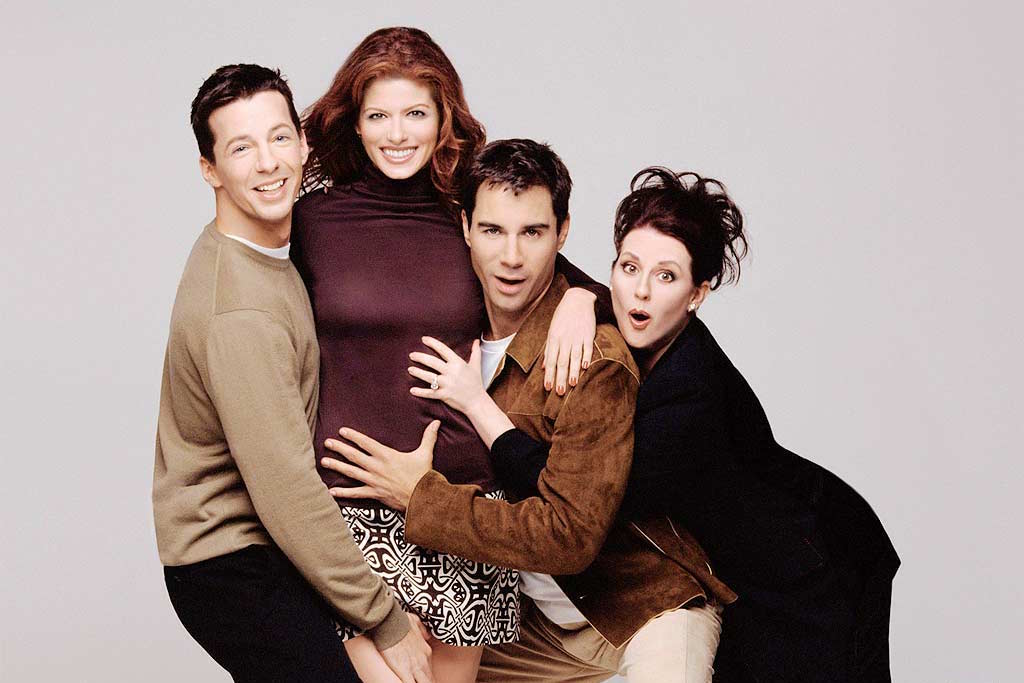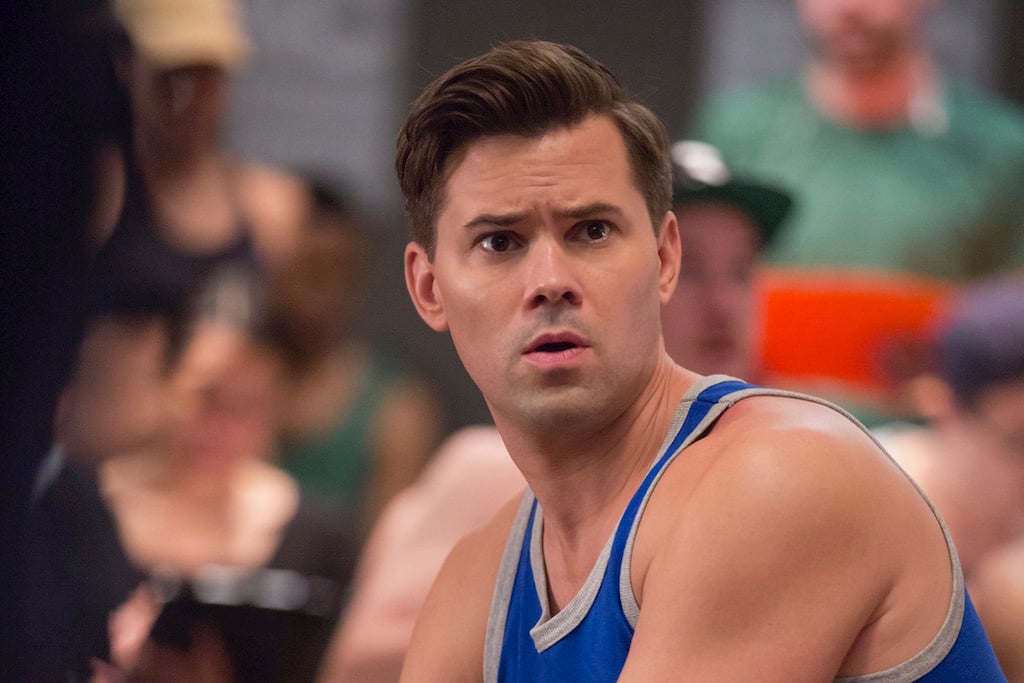What ‘Will And Grace’ Still Means To My Best Friend And Me
Two of the show's biggest fans revisit its 19-year-old premiere.
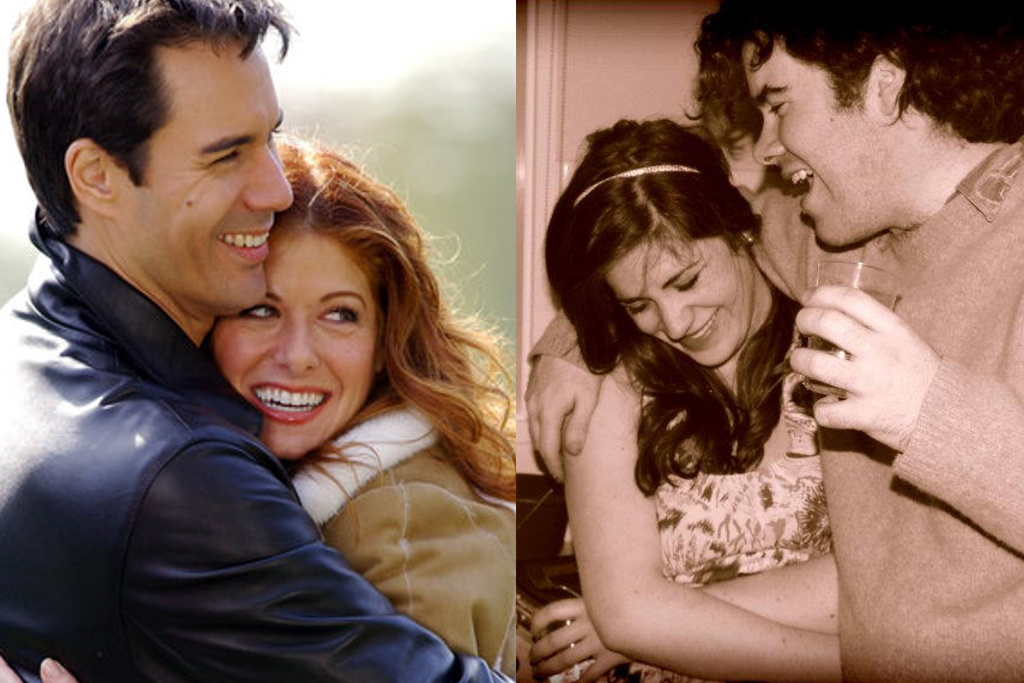
Will and Grace, the gayest sitcom of all time, premiered nearly 20 years ago this September. And now, in a TV environment that has changed a great deal (mostly for the better), the show returns with a brand-new run of episodes set 11 years after its original finale.
It’s difficult to tell how the series will be received in a landscape that has changed so significantly: the multi-cam sitcom is virtually dead, and queers kissing on primetime TV is far less scandalous than it once was. But, although the show has aged poorly in many ways (casual lesbian hatred anyone?), to the queers and their allies who treasured the show, its legacy and impending revival are still deeply important.
My best friend, Will, is one of those queers to whom Will and Grace was vital. When he and I met in 2009, we discovered we shared (among other things like a love of Cabaret, an interest in the types of trees in Royal Park, and an affinity with Enya’s ‘Sail Away’) a deep appreciation for Will and Grace, the show that half-shares his name. In the time we lived together, we would often revisit the show — first on the DVDs we rented, then bought, from our local Blockbuster, and later when the whole original series dropped on Stan.
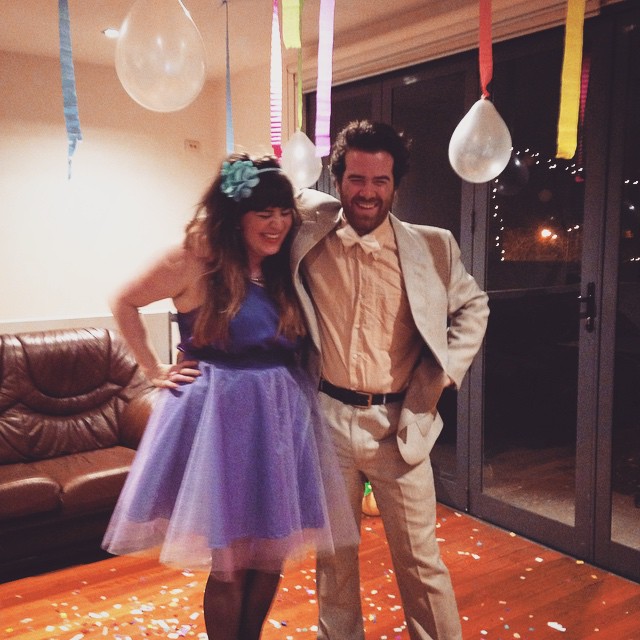
Yes we are almost unbearably adorable.
“It was like the first real representation of a gay man that I ever saw on TV,” Will tells me, when I ask him why the show is so important to him. “And it was also the first one that I could openly watch, because everyone would watch the show. It was my first experience of the coding of gay men, and all that sort of stuff.
“And I also just like it because it’s funny. The jokes are funny and it has a pretty similar sense of humour to what I have — very quippy and pop-culture infused.” This last part is the sensibility we share, as well as a feeling that we can sometimes see our own relationship (a gay man and a straight woman who are best friends) reflected back at us.
So, in light of Will and Grace‘s impending revival (which premiered last week on Stan), my Will and I came together to watch the original 19-year-old premiere of the series, and to discuss the show’s indelible legacy.
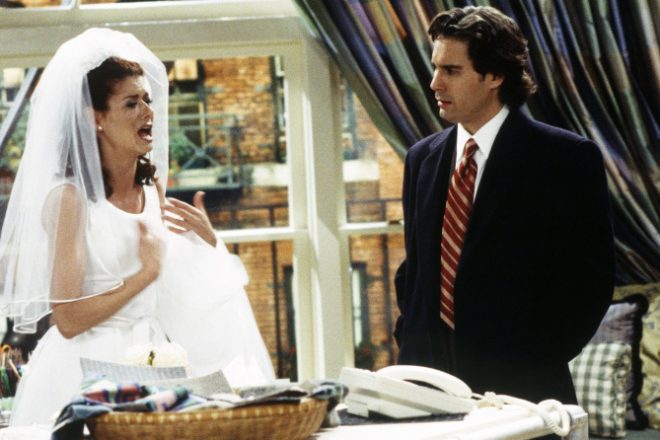
We begin with the Will and Grace premiere, of course, which premiered in September 1998 on NBC in the US. The familiar piano tinkle opens on a black screen, and the opening title appears: ‘Pilot (Love and Marriage)’. “Love and marriage?” Will says with disdain. “Ew.”
“Yeah, I did not know it was called that. Gross.”
This is a good place to start when considering the queer legacy of Will and Grace which, despite being a show about out gay men and their straight female friends living in New York, is one of the worst heteronormative representations of a so-called “Gay Best Friend” on TV.
Will Truman (Eric McCormack), the straight-acting gay male lead of the series, whom my Will refers to with a smirk and wiggling eyebrows as the show’s “straight man”, is the best friend and former lover of Grace (Debra Messing), a bubbly straight woman who is unlucky in love. For much of the show, the pair operate somewhat as a neutered straight couple — which is exactly what many people find problematic with respect to the GBF trope.
“I think they really lean on tropes of heterosexual relationships as a stand in for Will and Grace’s relationship,” Will says. “So a lot of what they do is really heteronormative.” It’s true that Will and Grace, whose relationship began as an ill-fated college romance before Will came out, are presented as a kind of straight married couple that doesn’t fuck. And the pair operate within a bunch of heteronormative tropes beyond that.
“There’s a level of expectation in that relationship that just only exists between sexual partners.”
Will agrees, pointing out that “a lot of surface-level characteristics” of the show’s titular pair are traditionally attributed to a straight couple. “Like, Will is a lawyer; Grace is an interior designer. Will is the more steady breadwinner person, and Grace is more off the chain and a little bit loopy.”
“A lot of the conflicts they have are also not real conflicts that happen between friends. There’s a level of expectation in that relationship that just only exists between sexual partners.”
In this way, the show has made quite the negative impact on how the world views relationships like mine and Will’s. For years we received joint invitations to parties or weddings, or were expected to share beds on weekends away as though we were just like a straight couple. It’s something that’s always made both of us a little uncomfortable, and we can see it reflected in how the show treats Will and Grace’s central friendship.
“The codes of friendship are different to the codes of a relationship,” Will points out, but I think that the show doesn’t care about that — it eschews that difference.”
I tell Will that, despite the fact I enjoy the show because it centres on the relationship between gay men and straight women, and the lead character shares a name with him, to me, our relationship never aligned with Will and Grace. “I think we’re more like Jack or Karen.”
“Yeah,” he says, “or even Jack and Grace”. Though they’re rarely paired together, some of the show’s best episodes pair Jack and Grace for a wacky storyline. Like season two’s ‘Tea And A Total Lack Of Sympathy’, where Grace and Jack team up in a bid to get on the fictional UK reality TV show Antiques On The Road. It remains one of our favourite episodes of all time, and as we watch, my Will turns to me and says: “Will is the worst. Will is the villain of this show”.
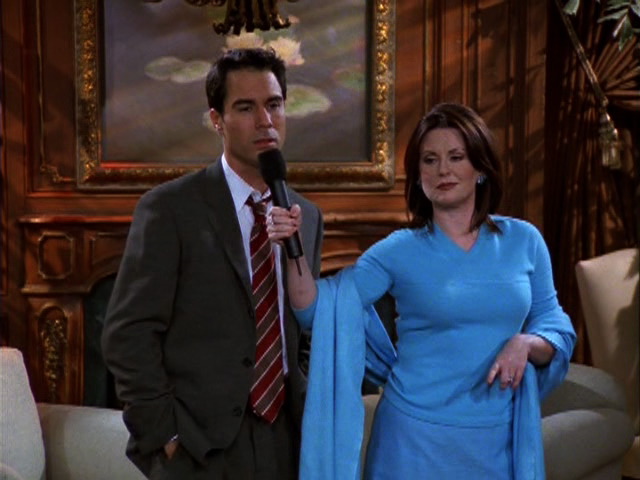
Hating on Will Truman is practically an Olympic sport for dedicated fans of Will and Grace, and one of our favourite pastimes. My Will theorises that the audience’s general disdain for TV Will is because the character is played by a straight actor. “For the first five seasons Will doesn’t have a boyfriend,” Will remembers, “and he’s really neutered”.
Whereas Sean Hayes, who portrays Jack, is gay in real life. “I quite like Jack,” Will says, “even though he’s seen as more stereotypical. I think that’s just femme-phobia.” Often people refer to Jack as a “mincing stereotype” of homosexuality, but there are plenty of proud femme men in the real-life gay community whose personality aligns much more with Jack than it does with Will, or the hyper-masc Vince (Bobby Cannavale), Will’s boyfriend and eventual husband from the original series.
“I think [Jack] is a decently real person as much as the rest of them are,” says Will. “Especially considering him and Karen — I think they’re written with the same level of complexity. And I also think that representations of femme males on TV almost don’t exist now.”
I point out that the last representations of hyper-femme men on TV that I remember are almost exclusively played by Broadway star Andrew Rannells — on Ryan Murphy’s The New Normal, Lena Dunham’s Girls and now on Nick Kroll’s animated series Big Mouth.
I wonder why there is so much hatred for the kind of gay man Jack represents, and Will explains it. “Because it’s not respectable, and people got more into ‘respectable’ representations of gay men — which is basically like trying to make gay people acceptable to the straight masses.
“There are so many gay men who are really femme and really proud of it — and who revel in their femme representation of themselves. And that’s one of the great things about Jack. There’s a sort of Fuck You aspect to how he sees himself. Like, Will is constantly making fun of Jack for how femme he is, and Jack gives it back to him every time.”
This last point is something we noticed a lot every time we’ve rewatched the show. Will needles Jack with homophobic and transphobic jokes about how femme he is — frequently implying Jack is really a woman — which, along with the show’s general disdain for lesbians, is one of the enduringly problematic elements of the series. We’re not the only ones who think so. There have been dozens of thinkpieces about how poorly Will and Grace’s gender and sexual politics have dated over the past two decades.
But for all its flaws, the show has become an important metric for gay representation on TV. And though sexuality is something explored more readily, and with a great deal more complexity now on TV than it was in the late 1990s, Will and Grace is still the only show to ever feature a gay lead on television for as long as it did — eight years! And on primetime free-to-air TV, no less.
“It was a revolutionary show,” Will says, as we watch the much-derided two-part finale of the original series together. “It had two out gay characters on TV for eight years. And that pretty much has not happened on TV since then.”
“Being gay was the centre of the show,” I add.
“I don’t really care if they fuck it up, because I have other things I value now.”
“I think it’s about friendship, more than being gay. It’s an interesting look at how complex friendships can be, and a lot of the conflicts in the show are to do with friendship, and like expectations people have in friendships of how things should be. I think that’s the best part of it.”
“I like that part, too,” I reply. “But I also think being gay informs how the friendships are presented. It’s very specifically about that ‘gay best friendship’. That’s what I find interesting about it, for all the flaws in those representations of gay-straight male-female kinship.”
I ask Will if he is nervous about the new season — if he worries it will ruin the show for him. “I’ll definitely watch it, but I’ve sort of moved on in terms of the references and representations of gay men that resonate with me. So I don’t really care if they fuck it up, because I have other things I value now; things that help me inform my identity and that reflect me back to me. Will and Grace isn’t that for me anymore.
Will thinks for a second, then adds, “The thing I like the most about it is still the relationships, the friendships.”
“Yeah, that’s what I like most about it, too.”
–
Matilda Dixon-Smith is Junkee’s Staff Writer. She tweets @mdixonsmith.
